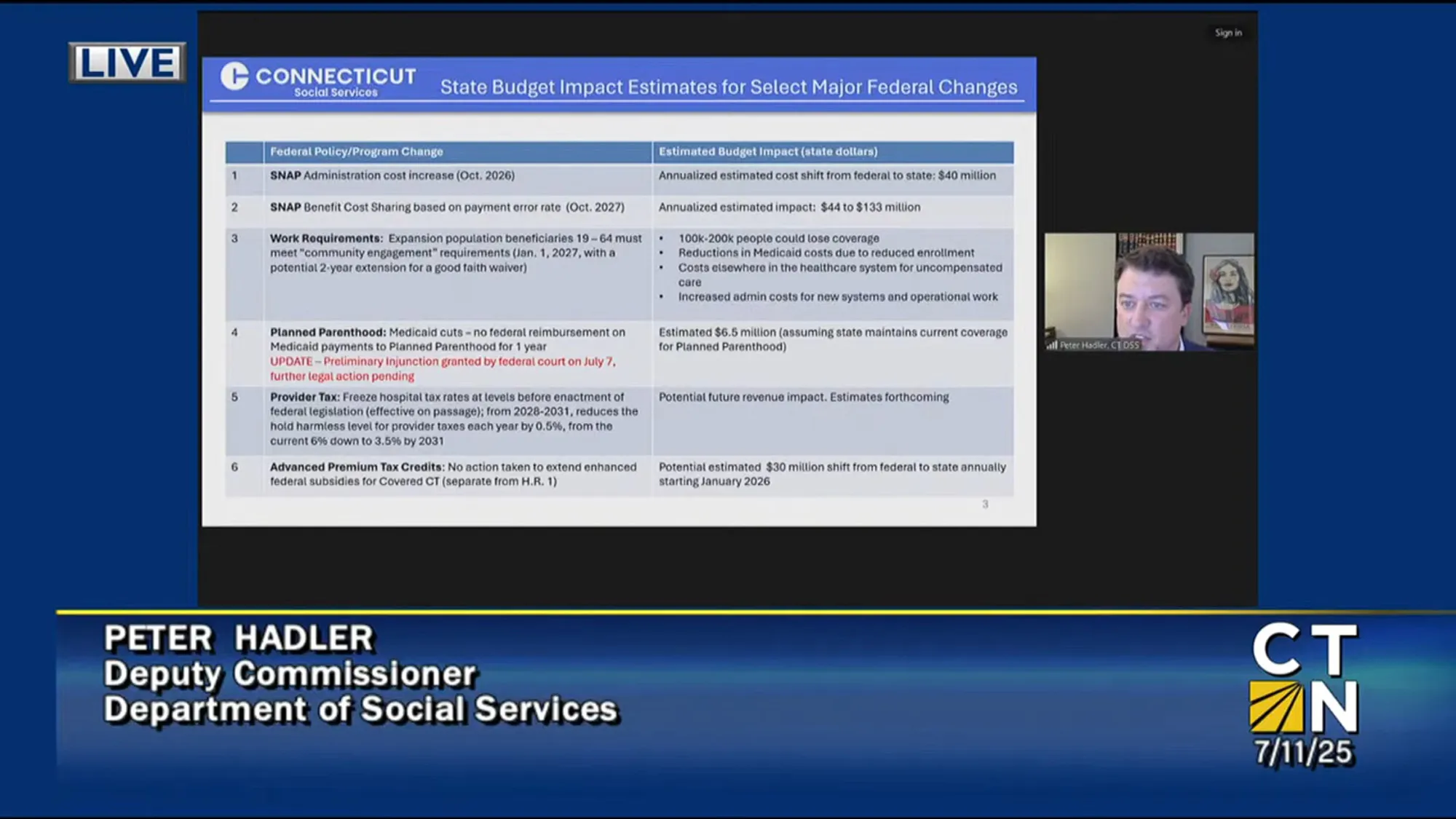Connecticut Joins 49-State Coalition Alleging Facebook Abuses

Audio By Carbonatix

Photo by Tim Bennett on Unsplash
The lawsuit alleges that Facebook stifled competition through exclusionary and predatory conduct.
By Christine Stuart, CTNewsJunkie.com
Connecticut will join 48 attorneys general in filing a lawsuit against Facebook, Inc. for allegations that it has stifled competition.
The Federal Trade Commission filed its own suit against the social media giant in federal court in Washington, D.C.
The lawsuit, which will be led by New York Attorney General Letitia James, alleges that over the last decade, Facebook illegally acquired competitors in a predatory manner and cut services to smaller competitive threats, depriving users from the benefits of competition and reducing privacy protections and services along the way – all in an effort to boost its bottom line through increased advertising revenue.
“Facebook has used its market power and trove of consumer data to unlawfully acquire and squash its competition,” Attorney General William Tong said in a statement. “Their exclusionary and predatory conduct suffocates innovation, and stymies small businesses and start-ups from getting their apps off the ground. In the process, the social media titan has degraded consumer privacy and protections.”
In order to guarantee its market dominance, Facebook, according to the lawsuit, “has coupled its acquisition strategy with exclusionary tactics that snuffed out competitive threats and sent the message to technology firms that, in the words of one participant, if you stepped into Facebook’s turf or resisted pressure to sell, Zuckerberg would go into ‘destroy mode’ subjecting your business to the ‘wrath of Mark’.”
Facebook called the lawsuit “revisionist history.”
“Antitrust laws exist to protect consumers and promote innovation, not to punish successful businesses,” Jennifer Newstead, vice president and general counsel, for Facebook, said.
Two of Facebook’s acquisitions mentioned in the lawsuit include Instagram and WhatsApp.
“Each had enormous and rapidly growing user networks, and each was well positioned to encroach on Facebook’s dominant market position,” the lawsuit states. “Facebook kept both services running after the acquisitions to fill the void, so they would not be replaced by another app with the potential to erode Facebook’s dominance.”
When an entity refused to sell to Facebook, according to the lawsuit, the company would change “its practices and policies to close the application programming interfaces (“APIs”) on which those services relied, and it took additional actions to degrade and suppress the quality of their interconnections with Facebook.”
An app that suddenly loses access to Facebook is harmed not only because its users can no longer transfer their friend list to the new app, but also because a sudden loss of functionality – which creates broken or buggy features – suggests to users that an app is unstable. In the past, some of these companies experienced almost overnight drop-off in user engagement and downloads, and their growth stalled.
“Instagram and WhatsApp became the incredible products they are today because Facebook invested billions of dollars, and years of innovation and expertise, to develop new features and better experiences for the millions who enjoy those products,” Newstead said.
Facebook’s market power also impacted the privacy of its users.
“Facebook’s unlawfully maintained monopoly power gives it wide latitude to set the terms for how its users’ private information is collected, used, and protected,” according to the lawsuit. “In addition, because Facebook decides how and whether the content shared by users is displayed to other users, Facebook’s monopoly gives it significant control over how users engage with their closest connections and what content users see when they do.”
The lawsuit goes on to allege that Facebook also hurt advertisers.
“By eliminating, suppressing, and deterring the emergence and growth of personal social networking rivals, Facebook also harms advertisers in a number of ways, including less transparency to assess the value they receive from advertisements, and harm to their brand due to offensive content on Facebook services,” the lawsuit states.
“People and small businesses don’t choose to use Facebook’s free services and advertising because they have to, they use them because our apps and services deliver the most value. We are going to vigorously defend people’s ability to continue making that choice,” Newstead added.
The coalition of attorneys general is asking the court to halt Facebook’s alleged anticompetitive conduct and block the company from continuing this behavior in the future.
Additionally, the coalition asks the court to restrain Facebook from making further acquisitions valued at or in excess of $10 million without advance notice to the state of New York and the other plaintiff states. Finally, the court is asked to provide any additional relief it determines is appropriate, including the divestiture or restructuring of illegally acquired companies, or current Facebook assets or business lines.
Republished with permission from CTNewsJunkie.com, all rights reserved.
Like what you see here? Click here to subscribe to We-Ha’s newsletter so you’ll always be in the know about what’s happening in West Hartford! Click the blue button below to become a supporter of We-Ha.com and our efforts to continue producing quality journalism.



